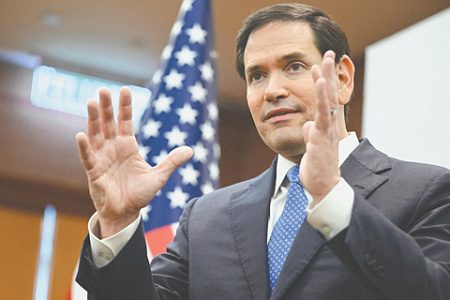
Washington is actively coordinating with its allies to develop a framework for security guarantees for Ukraine, presenting it as a viable alternative to the country’s long-sought NATO membership. The initiative is being spearheaded by U.S. Secretary of State Marco Rubio, who is slated to hold high-stakes talks with national security advisors from several allied nations to solidify the plan, which aims to create conditions for a negotiated peace.
This diplomatic push is closely tied to President Donald Trump’s stated goal of facilitating a peace settlement. Following his own summit with Russian President Vladimir Putin, Trump is now focused on brokering direct negotiations between Putin and Ukrainian President Volodymyr Zelenskyy. To oversee the creation of these security guarantees, Trump has appointed a trio of top officials: his special representative Steve Witkoff, Vice President J.D. Vance, and Secretary Rubio. Notably, Vance has publicly suggested that Europe, not the United States, should take the “leading role” in providing these assurances to Kyiv.
In line with this, America’s European partners, forming a “coalition of the willing,” are already discussing the core element of the proposed guarantees: the potential deployment of their troops into Ukrainian territory after hostilities cease. However, the specifics of this hypothetical post-conflict mission remain highly ambiguous, with no clarity on the exact composition of contributing nations or the mandate of their forces. It has been made clear, however, that U.S. troops would not be part of such a contingent.
These high-level discussions about post-war arrangements are taking place under a cloud of skepticism, as they seem to presume a peace that is not yet on the horizon. Hostilities continue, and a summit between the Russian and Ukrainian leaders exists only in the proposals of Western officials. The Kremlin, for its part, remains staunchly opposed to any foreign military presence in Ukraine—whether under a NATO flag or any other—casting doubt on the viability of the current diplomatic track and fueling perceptions that the talks may be more for show than for substantive progress.
Seemingly to counter this impression of diplomatic inertia, recent developments suggest a potential shift in strategy. Military chiefs from the U.S., UK, France, and other key allies have reportedly discussed “military options to support peace talks,” hinting at a possible escalation from the Ukrainian side to strengthen its negotiating position. This was followed by a striking statement from President Trump, who criticized his predecessor, Joe Biden, for restricting Ukraine to a purely defensive strategy. “You can’t win by only playing defense,” Trump declared, promising “interesting times ahead” without further elaboration.
